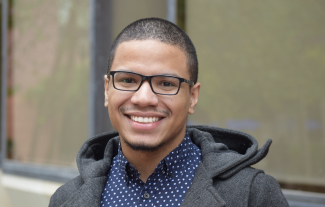
Since the 1950s, the American dream has become synonymous with upward mobility and economic stability. If you work hard enough, you’ll be rewarded with a good-paying job, a house, a family—all the comforts and security of the middle class. The allure of the American dream has persisted through economic downturns, housing market crashes, and now a pandemic. But for whom is the dream still viable? And for those who do achieve it, what then?
“It’s rare to see in research that people are interested in the consequences of mobility, because people see it as just being a good thing,” says Alexander Adames, a doctoral candidate in sociology in the School of Arts & Sciences, who studies the predictors, as well as the costs, of attaining the American dream.
